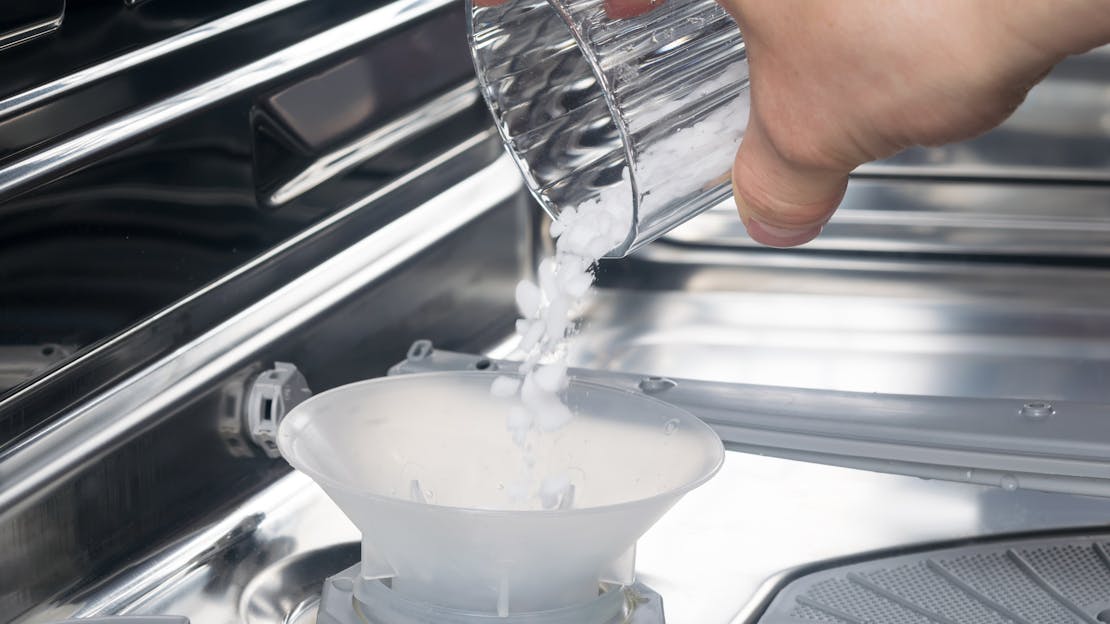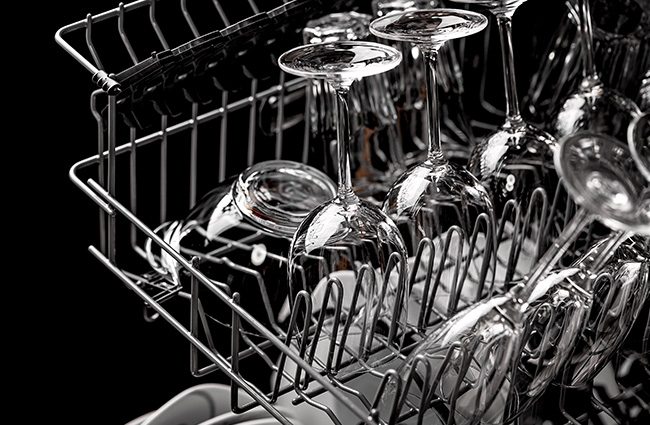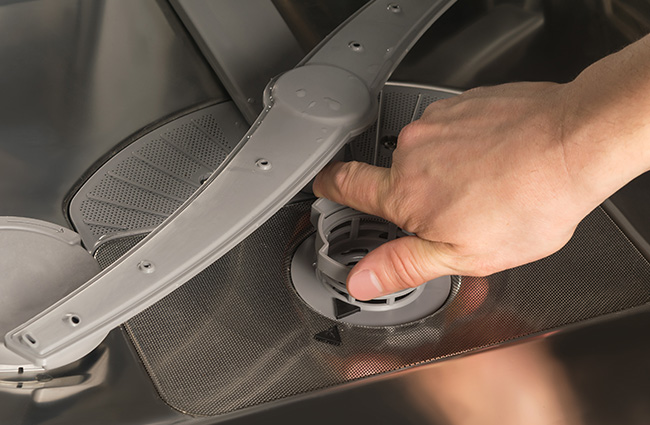
What is dishwasher salt and what does it do
Welcome to our comprehensive guide on dishwasher salt, the unsung hero that can transform your dishwashing experience and leave your dishes looking spotless and gleaming. If you've ever wondered why your dishwasher isn't performing as well as expected or why limescale seems to be taking over your appliance, the answer might lie in the magical properties of dishwasher salt.
In this guide, we'll delve into the world of dishwasher salt, explaining its purpose, how it works, and why it is a game-changer in areas with hard water. Whether you're a dishwasher pro looking to enhance your machine's efficiency or a newcomer seeking to demystify the dishwasher salt process, you've come to the right place.
What is dishwasher salt?
Dishwasher salt, also known as water softener salt or dishwasher water softener salt, is a type of salt specifically used in dishwashers. It is not the same as table salt, which is used for seasoning food. Dishwasher salt is a special type of coarse-grained salt that is used to regenerate the ion exchange resin in the water softener of a dishwasher.

What does dishwasher salt do?
Dishwasher salt serves a crucial purpose in dishwashers by helping to soften the water used during the cleaning process. The main functions of dishwasher salt are as follows:
Water Softening: Many regions have "hard water," which contains high levels of calcium and magnesium ions. When hard water is used in dishwashers, it can lead to the build-up of limescale on the dishwasher's heating element, spray arms, and other components. This limescale can reduce the dishwasher's efficiency and cleaning performance over time. Dishwasher salt is designed to combat this issue by softening the water before it enters the dishwasher.
Ion Exchange: The dishwasher salt, which is a coarse-grained salt, is added to a designated compartment or reservoir in the dishwasher. During the wash cycle, the water softener unit within the dishwasher uses the salt to undergo an ion exchange process. The salt releases sodium ions, and these sodium ions replace the calcium and magnesium ions in the water. As a result, the water becomes softer and less likely to cause limescale build-up.
Enhanced Cleaning Performance: Softened water is more effective at dissolving and removing dirt, grease, and food residues from dishes and glassware. By reducing water hardness, dishwasher salt ensures that the dishwasher detergent can work more efficiently, leading to cleaner and shinier dishes.
Appliance Protection: Regular use of dishwasher salt can help prolong the life of the dishwasher by preventing limescale build-up. Limescale can damage the dishwasher's internal components, such as the heating element, pump, and spray arms, leading to costly repairs or a decrease in the dishwasher's lifespan.
Overall, dishwasher salt plays a vital role in maintaining the dishwasher's performance and protecting it from the harmful effects of hard water. It is a necessary component for many dishwashers, particularly in areas with hard water, to ensure optimal cleaning results and keep the appliance in good working condition.

How do I check if I live in a hard water area?
The hardness of water can vary significantly from one region to another. Some areas have hard water, which contains high levels of minerals like calcium and magnesium, while others have soft water, which contains fewer mineral ions.
To find out if you live in a hard water area, you can:
Check Local Water Reports: Many municipalities and water suppliers provide water quality reports to their residents. These reports often include information about water hardness and other parameters. You can check your water supplier's website or contact them directly to request this information.
Use Water Test Kits: You can purchase water test kits from hardware stores or online retailers. These kits allow you to test the hardness of your water at home and provide an indication of whether your water is hard, moderately hard, or soft.
Look for Signs of Hard Water: Hard water can leave visible signs, such as mineral deposits on faucets, sinks, and glassware, or white scale build-up on appliances like kettles and coffee makers.
Ask Neighbours or Local Residents: If you are unsure about the water hardness in your area, you can ask your neighbours or other local residents about their experiences with water quality.
Determining whether you live in a hard water area can be beneficial, especially if you have a dishwasher or other appliances that may be affected by water hardness. If you do have hard water, using dishwasher salt in your dishwasher can help mitigate the effects and improve cleaning performance.

Where does the dishwasher salt go?
To fill a dishwasher with salt, here are some general steps. Please note that the exact process may vary slightly depending on the model and manufacturer of your dishwasher, so always refer to the user manual for specific instructions:
Check the User Manual: Before starting, familiarize yourself with the dishwasher's user manual to locate the salt compartment and to ensure that your dishwasher is compatible with dishwasher salt. Not all dishwashers have a salt compartment, and some models may use a different water softening system.
Purchase Dishwasher Salt: Purchase dishwasher salt from a store. It is usually available in coarse-grained form and can be found in the detergent aisle or near the dishwasher supplies.
Access the Salt Compartment: Open the dishwasher door and locate the salt compartment. It is usually located at the bottom of the dishwasher, near the floor. The compartment may have a screw-on or pull-out cap, or it might have a hinged lid that you can open.
Unscrew/Remove the Cap: If your dishwasher's salt compartment has a screw-on cap, twist it counter clockwise to remove it. If it has a pull-out cap or a hinged lid, open it to reveal the salt reservoir.
Fill the Compartment: Carefully pour the dishwasher salt into the compartment. Use a funnel if necessary to avoid spillage and ensure that the salt goes directly into the reservoir. Fill the compartment up to the indicated level or as specified in the user manual.
Avoid Overfilling: Be cautious not to overfill the compartment, as this can lead to clogs or issues with the dishwasher's water softening system.
Close the Compartment: If the salt compartment has a screw-on cap, tighten it by twisting it clockwise. If it has a pull-out cap or hinged lid, close it securely.
Run a Rinse Cycle: To ensure that the salt dissolves properly and is ready for use, run a rinse cycle (without any dishes) after filling the salt compartment.
Check Salt Levels Regularly: Dishwasher salt is not consumed like dishwasher detergent. You typically only need to refill the salt compartment when the dishwasher's salt indicator light comes on or when the salt level is visibly low.
Remember to always use dishwasher salt specifically designed for dishwashers, as other types of salt may contain additives that can damage the appliance. Following these steps and consulting your dishwasher's user manual will help you properly fill the dishwasher with salt and maintain its efficiency.
Top Selling Integrated Dishwashers from MyAppliances
Explore our sleek integrated dishwashers, delivering exceptional cleaning performance and seamless design integration. With advanced technology and customisable settings, dishwashing becomes effortless. Upgrade your kitchen with our integrated dishwashers today.
Buying Guide - Helping you choose the right washer
Buying Guide - Helping you choose the right washer
If you're looking to replace your existing dishwasher or set up a brand new kitchen, our comprehensive guides are designed to assist you in finding the perfect dishwasher for your needs. Our team of experts has curated valuable insights and recommendations to ensure you make the best choice.
In this guide, we explore dishwasher types, features, and their indispensable role in transforming dishwashing into a breeze. Whether you're a kitchen pro or newcomer, you'll discover the perfect dishwasher for your needs.
With fantastic features and settings to suit your requirements, our full-size and slim-line dishwashers offer excellent value for money.


